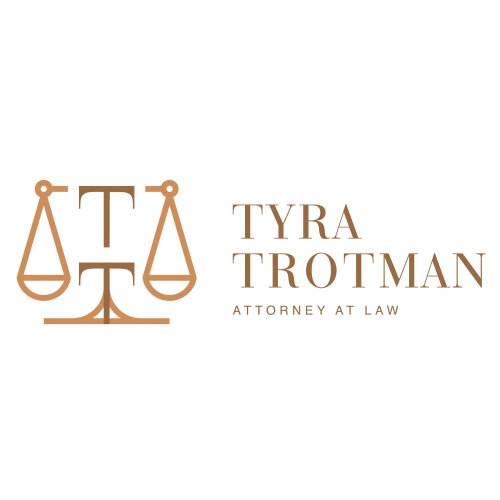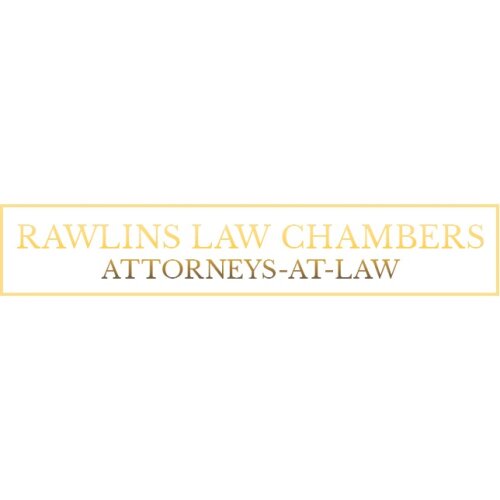Best Collaborative Law Lawyers in Barbados
Share your needs with us, get contacted by law firms.
Free. Takes 2 min.
Free Guide to Hiring a Family Lawyer
Or refine your search by selecting a city:
List of the best lawyers in Barbados
About Collaborative Law in Barbados:
Collaborative Law in Barbados is a method of resolving legal disputes outside of court through cooperation and communication between parties. It involves lawyers trained in collaborative practices working together with their clients to find mutually agreeable solutions.
Why You May Need a Lawyer:
You may need a lawyer in Collaborative Law in Barbados if you are facing a legal dispute with another party and wish to resolve it amicably without going to court. A lawyer can provide guidance, representation, and ensure that your interests are protected throughout the collaborative process.
Local Laws Overview:
In Barbados, Collaborative Law is governed by the Collaborative Law Act, which outlines the procedure and requirements for parties engaging in the collaborative process. It is important to be familiar with this Act and other relevant local laws when seeking legal assistance in Collaborative Law.
Frequently Asked Questions:
1. What is the role of a lawyer in Collaborative Law?
A lawyer in Collaborative Law acts as a legal advisor, negotiator, and advocate for their client, ensuring that their interests are represented in the collaborative process.
2. How does Collaborative Law differ from mediation?
Collaborative Law involves each party having their lawyer present during the negotiations, while mediation typically involves a neutral third party helping both parties reach a mutual agreement.
3. Can Collaborative Law be used for all types of legal disputes?
Collaborative Law is commonly used for family law matters such as divorce and child custody issues, but it can also be used for other civil disputes where parties are willing to work together to find a resolution.
4. What are the benefits of choosing Collaborative Law over traditional litigation?
Collaborative Law often results in faster, cheaper, and less adversarial outcomes compared to litigation. It also allows parties to have more control over the final agreement.
5. What happens if the collaborative process is unsuccessful?
If the collaborative process is unsuccessful, both parties must hire new lawyers and proceed with litigation if they wish to resolve the dispute through the court system.
6. Are the outcomes of Collaborative Law legally binding?
Yes, the outcomes of Collaborative Law are legally binding as long as all parties agree to and sign the final settlement agreement.
7. How long does the Collaborative Law process typically take?
The length of the Collaborative Law process can vary depending on the complexity of the case and the willingness of parties to cooperate. It can range from a few weeks to several months.
8. How much does Collaborative Law cost?
The cost of Collaborative Law depends on the complexity of the case and the hourly rates of the lawyers involved. It is often less expensive than traditional litigation but can still be a significant investment.
9. Can I switch to litigation if I am unhappy with the Collaborative Law process?
If you are unhappy with the Collaborative Law process, you have the option to switch to litigation and pursue your case through the court system. However, this may result in additional time and expenses.
10. How do I find a qualified Collaborative Law lawyer in Barbados?
You can find a qualified Collaborative Law lawyer in Barbados by contacting the Barbados Bar Association or asking for recommendations from friends, family, or other legal professionals.
Additional Resources:
For more information on Collaborative Law in Barbados, you can visit the Barbados Bar Association website or contact the Association for Conflict Resolution Barbados Chapter.
Next Steps:
If you require legal assistance in Collaborative Law in Barbados, we recommend reaching out to a qualified lawyer experienced in collaborative practices. They can guide you through the collaborative process and help you reach a favorable resolution to your legal dispute.
Lawzana helps you find the best lawyers and law firms in Barbados through a curated and pre-screened list of qualified legal professionals. Our platform offers rankings and detailed profiles of attorneys and law firms, allowing you to compare based on practice areas, including Collaborative Law, experience, and client feedback.
Each profile includes a description of the firm's areas of practice, client reviews, team members and partners, year of establishment, spoken languages, office locations, contact information, social media presence, and any published articles or resources. Most firms on our platform speak English and are experienced in both local and international legal matters.
Get a quote from top-rated law firms in Barbados — quickly, securely, and without unnecessary hassle.
Disclaimer:
The information provided on this page is for general informational purposes only and does not constitute legal advice. While we strive to ensure the accuracy and relevance of the content, legal information may change over time, and interpretations of the law can vary. You should always consult with a qualified legal professional for advice specific to your situation.
We disclaim all liability for actions taken or not taken based on the content of this page. If you believe any information is incorrect or outdated, please contact us, and we will review and update it where appropriate.
Browse collaborative law law firms by city in Barbados
Refine your search by selecting a city.









